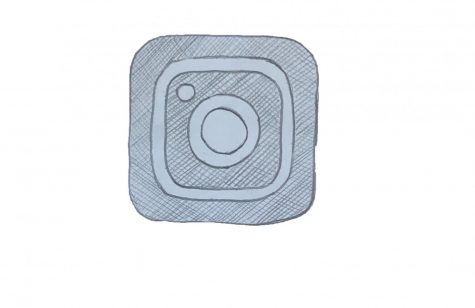Performative activism: how white savior mentality is taking over the BLM Movement

Since George Floyd’s murder, Urban students’ social media platforms have transformed into spaces where people advocate for human rights, share what they feel passionate about, and encourage peer growth. Though social media activism is a useful method for spreading awareness within the Urban community, it is often tied to performative activism and can shift power away from people of color.
According to a 2019 article by CNN, US teenagers spend upwards of 7 hours a day on social media for entertainment. “I think it’s really good that our generation has taken the time to put all of the information where people are already gravitating towards, and in this case, it’s Instagram,” said Lola Martins ‘21.
“My social media was very self centered and now I think it’s very much about looking at the world,” said Sofie Van Natta ‘22.
When engaging in social media activism, however, the spotlight has the potential to shift from the issue at hand to the individual proving their own moral integrity, making the activism performative. “It’s easy to repost without even having to reflect on things that you do in your day to day life that could be seen as racist,” Martins said. “Just reposting something can sometimes seem like a cop out.”
“Instagram activism comes with a lot of hypocrisy,” said Van Natta.“I wouldn’t post about something that I know I’ve been guilty of without apologizing for it, or recognizing that I’ve done this.”
Max Miller ‘22 agrees that Instagram activism can cultivate an environment that is hypocritical, fake and impersonal. “It’s a burden on me as a person of color, to see you not acknowledging anything that you’ve done in your past and then [post on social media] like you’re some saint,” he said.
Martins thinks the lack of vulnerability and ownership of one’s past actions on social media comes from a fear of being called out and judged. “I’ve spoken to a few people at Urban that have been called out before for saying racist things or homophobic things, and they’re scared that if they repost that people might not take them as seriously because of things that they’ve said in the past,” she said.
“I also think that’s a really big issue at Urban, to not give people the place to grow and show that they’ve changed,” Martins said, commenting on the cancel culture at Urban.
Martins has noticed that, like social media activism, cancel culture can be performative and used as a way to bring oneself into the limelight. This performative aspect of cancel culture is especially prevalent when using social media as a platform to call someone out, since it’s so public. “It’s so easy to point fingers and call out messed up things that people have done in the past,” said Martins. “A lot of people are doing that to uplift themselves and prove to themselves and other people that they’re a good person, rather than actually being upset by what someone said.”
There is an even greater risk of being performative when a white person cancels someone on behalf of a person of color. “I feel like it shouldn’t be the white allies who are speaking for me, and I think it’s very easy for white allies to be like, okay, you’re canceled, but that person was never really affecting you,” said Miller. “I think the best thing that people can do is try to create a good conversation that can lead towards maybe some changes in someone’s mind because that’s the only way anything will ever change.”
Miller has found that through social media activism, many Black voices have been decentered by that of white allies. “Often the people posting are people who are white and don’t face the issue, so it’s kind of taking over the movement when you’re just supposed to be an ally and listen,” he said. “People are now thinking that they’re experts of racism and Black Lives Matter and anti-racism when they’re white people who just need to be on the side and listen, instead of trying to be in the forefront,” he said.
Since social media activism has become such a widespread trend, white allies speaking for people of color on Instagram has become normalized. “People definitely need to shift the mindset, from this white savior mentality and proving that you are a good person and shifting it towards actually caring for the issue,” said Martins. “White people should definitely be looking for the black people in their feed that they follow and see what they’re reposting because most likely they’re reposting things that have stuck with them on an emotional level throughout their lives. You don’t even necessarily have to repost that but just try to put yourself in their shoes and think about what that post means to them.”
Martins thinks that the best thing white people can be doing during this movement is self-educating and listening, POC to control these conversations, on Instagram and beyond. “I think people might be doing a little bit too much performative activism right now and not enough reading books for themselves and listening to documentaries, listening to people that have been educated on this issue,” Martins said.
It’s easy for social media activism to be performative when it’s the only form of activism one engages in. “Instagram activism is such a small part of activism,” Van Natta said. “Just posting on your story, even if it is really helpful and important, is a small step. If you truly believe in that, go out and do something else. There’s so much action beyond Instagram that needs to happen.”











